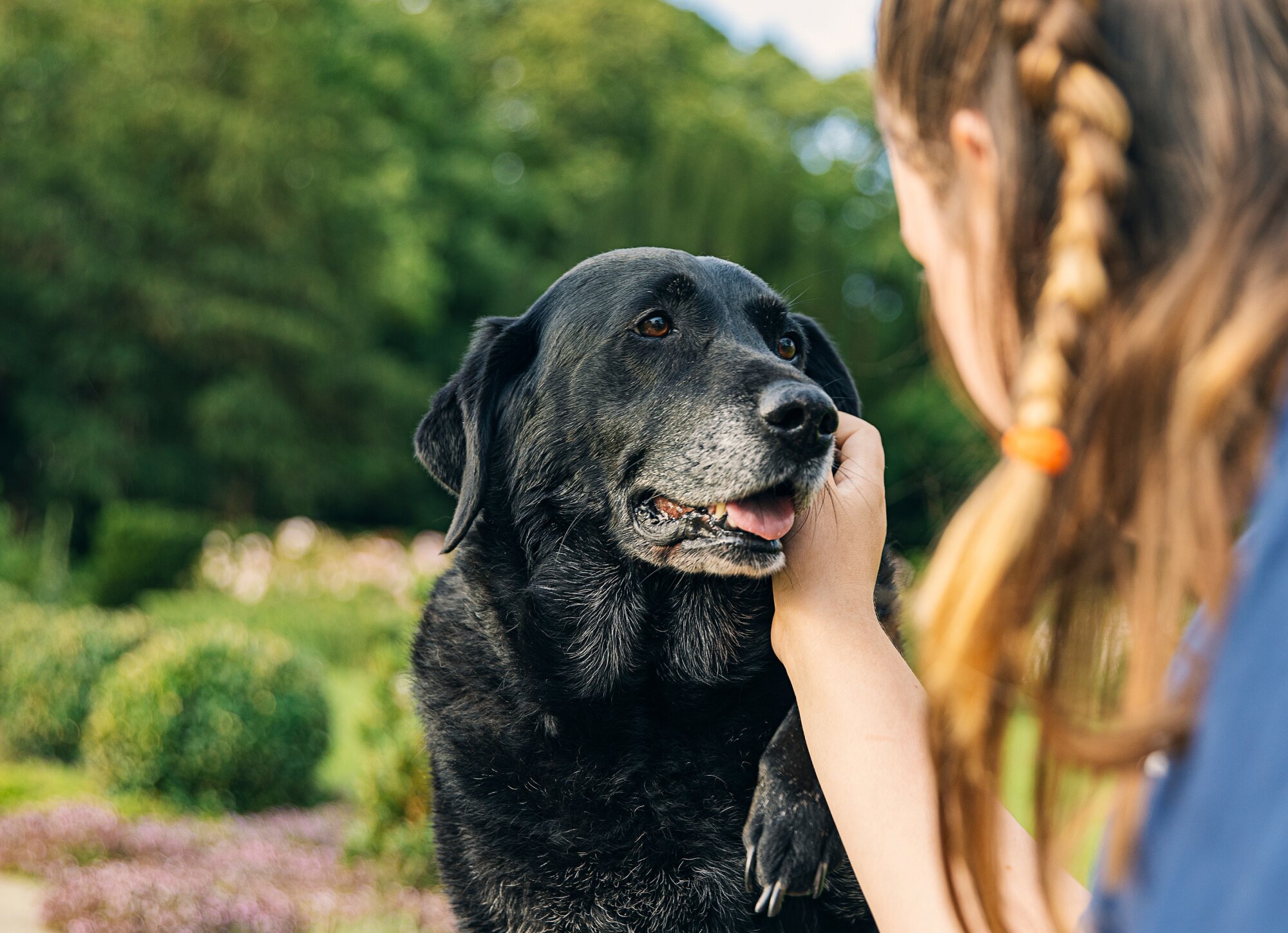Cancer is a scary illness that no one wants their dog to experience. Unfortunately, there are some forms that pet parents can't prevent.
To prepare and have your dog's health top of mind, it's important to know common signs of cancer in dogs and what you can do to treat it.
In this article, we'll cover:
- What is cancer in dogs
- 10 warning signs of cancer in dogs
- Why is it common in older dogs
- The most common types of cancer in dogs
- Ways to treat and heal cancer

What is cancer in dogs
Cancer happens when your dog's cells grow abnormally and move throughout their body. When the cells spread, they destroy normal tissues in your pet's body. This causes symptoms and issues that can cause trouble in your dog's day-to-day life.
Cancer is common, and conditions vary from dog to dog. That’s why it can be tricky to diagnose symptoms in your pet. So, it's important to visit your veterinarian regularly for check-ups.
10 warning signs of cancer in dogs
A dog can live for years with cancer if veterinarians diagnose it early. But, some cancers spread quickly and aggressively, making treatment and quality of life more difficult.
Here are 10 common warning signs of cancer in dogs to look out for:
- Sudden weight loss with no diet changes
- Difficulty breathing
- Swollen lymph nodes and persistent cough
- Non-healing wounds or sores on your pet's skin
- Discharge from an open wound, or the mouth, nose, or anus
- Decreased appetite and trouble eating
- Unusual lumps and bumps on your pet's body
- Changes in bathroom habits
- Bad odor from tumors in your dog's mouth or nose
- Mobility issues like limping or stiffness
Remember, not all of these warning signs are surefire ways to diagnose cancer symptoms. Other illnesses and types of disease may cause similar warning signs in your dog.
VET TIP
If you notice any of these warning signs, or think another symptom may be a warning sign, take your pet to consult a veterinary oncologist for advice and a check-up.
Why is cancer common in older dogs
Cancer may affect one in four younger dogs in their lifetime. And, almost half of senior dogs over the age of ten will develop cancer. But why is it common in senior dogs?
Family history and breed
Your dog's bloodlines may play a role in their risk of developing a form of cancer. There are a few breeds that are especially susceptible:
- Bernese Mountain Dogs
- Boxers
- Golden Retrievers
- Rottweilers
Environmental factors
Pets live in the same environment as their humans. So, certain types of environmental hazards and risk factors for cancer expose them.
Some environmental hazards include:
- Ultraviolet radiation (lengthy sun exposure)
- Second-hand tobacco smoke
- Herbicides and pesticides used in agriculture
- Air pollution
- Carcinogens like nickel, uranium, benzene, and asbestos
Age
As your dog ages, their immune system weakens. Aging also allows a dog's cells to mutate into precancerous cells.
Healthy cells divide and repair continuously. But, as your dog ages, their cells are more likely to divide incorrectly and not get repaired.
Plus, the longer your dog lives, the more likely they are to be exposed to environmental factors that may lead to cancer. This is why it is more common in senior pups.
VET TIP
According to the Veterinary Cancer Society, canine cancer is the leading cause of death in dogs in the United States. As a pet parent, it's important to monitor your dog's health through veterinary care and watch for warning signs.

The most common types of cancer in dogs

Some cancers are more common in dogs than other pets. Here are the most common types of cancers found in dogs.
Osteosarcoma (bone cancer)
The most common signs of this disease are lameness, weight loss, and swelling. Bone cancer is commonly found in giant dog breeds like:
- Bernese Mountain Dogs
- Boxers
- German Shepherds
- Great Danes
- Greyhounds
- Rottweilers
Osteosarcoma is diagnosed through x-rays, blood tests, and samples. A biopsy of the tumor may also be necessary for diagnosis.
Lymphoma
Lymphoma occurs when your dog's lymph nodes are enlarged. You can find your dog's lymph nodes along their jaw, in front of their shoulders, in their armpits and groin, and behind their knees.
To diagnose this form of cancer, a veterinary oncologist uses a fine needle aspirate to take a sample of the lymph node. Then, it is examined by a pathologist to look for evidence of cancer.
Mast cell tumors
These are fairly common and are found on or just below your dog's skin. Swelling, bumps, and lumps on your dog's skin are the main sign of mast cell tumors.
Diagnosis usually comes from taking a sample from the swelling. After diagnosis, the oncologist or veterinarian may recommend more tests to determine if it has spread to other parts of the body.
Oral cavity and nasal tumors
These cause issues like stinky breath, drooling, persistent cough, and difficulty eating. If your pet has a nasal or mouth tumor, they may also suffer from fungal or a bacterial infection.
They can be benign (unlikely to migrate) or malignant (likely to migrate). A CT scan and biopsy is recommended to diagnose them.
Cancer treatment options

If your veterinarian finds evidence of cancer in your dog, there are plenty of ways to treat cancer. Early detection is important, as the sooner your dog is diagnosed, the sooner treatment can start.
Here are the most common forms of treatment for cancers found in dogs.
Chemotherapy
Chemotherapy uses drugs to kill or slow down the growth of cancerous cells. Chemotherapy can be given in pill form or intravenously.
Radiation therapy
Radiation therapy uses high doses of radiation to damage and kill cancer cells in your dog's body. Radiation is also used to shrink or destroy lumps of cells.
Immunotherapy
Immunotherapy works to boost your dog's immune system to fight off cancer cells. It's most commonly used in combination with other treatments.
Surgery
Most forms of cancer in dogs require surgical removal of a tumor or cancer cells. After surgery, your dog will need lots of rest. Your vet may provide prescription pain medications to assist with pain management from side effects and keep your dog comfortable.
Cancer is a serious illness that affects many dogs and other pets. As pet owners, it’s important to keep an eye out for potential warning signs of cancer. Rest assured, there are plenty of treatment plans to heal your dog's condition and help them live a long, happy life.


